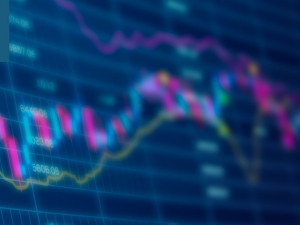
UK Quarantine rules under attack
Morning mid-market rates – The majors
10th June: Highlights
- Sterling struggling to make further gains
- Market awaits Fed outcome
- Q1 GDP marginally better first estimate
Government’s caution leading to market concerns
As the UK prepares for a further easing of lockdown restrictions with non-essential shops to open next Monday, despite some major retailers deciding that it is not yet safe to do so, the Government has performed a U-turn over the return to school before the summer of children in the younger age group. This confused policy has led to concerns that the Government’s strategy is being decided on the hoof.
Many parents will be looking at alternative childcare options as they begin to consider a return to work with senior as well as junior schools now looking unlikely to return before the new term in September, at the earliest.
Another of the Government’s policies for dealing with the pandemic has also come under fire. The forced quarantine for fourteen days of all but a few visitors arriving in the UK has been attacked by the travel industry and airlines in particular as their already decimated businesses take another hit.
The policy which is seen as both impractical and unworkable may become the subject of legal action as low-cost airlines, backed by some major industry members consider taking the Government to court to have the rules overturned.
With pressure being exerted over the BLM protests, a series of seemingly confused policy decisions and Brexit deadlines looming, the country is in need of firm, decisive leadership if it is to begin to emerge from these massive issues in a positive manner.
Yesterday, the pound trod water versus the dollar as the latter awaits today’s Central Bank briefing. It rose marginally to a high of 1.2755, closing at 1.2729.
Considering your next transfer? Log in to compare live quotes today.
U.S. has entered recession
President Trump has been strangely quiet recently as he and his advisors try to put a positive spin on the economy, the fallout of the of George Floyd murder reactions to the Covid-19 pandemic.
As the western world looks to Washington for guidance, America is uncharacteristically struggling so much with its internal affairs that global leadership is waning.
This may be a temporary phenomenon but as we said a few weeks ago, the international influence of China, despite its role in the spread of Covid-19 is on the rise. This has led to the birth of several conspiracy theories but given the continuing problems and the possibility of a second spike, those concerns have been tabled for now.
The Business Cycle Dating Committee of the National Bureau of Economic Research said its members “concluded that the unprecedented magnitude of the decline in employment and production, and its broad reach across the entire economy, warrants the designation of this episode as a recession, even if it turns out to be briefer than earlier contractions.”
That rather convoluted statement simply means that the economy is in recession, has been since February and the likelihood is for a U-shaped, if not a V-shaped recovery.
The market appears in confusion about the dollar’s path, there seems to be less interest in selling as the global economy stabilizes, but reasons to buy are few and far between.
Yesterday, the dollar index struggled to hold above support at 96.40. It fell to a low of 96.22, closing at 96.39
Shrinking economy will see banking profits collapse
While the outcome of shrinking economies can be firmly laid at the door of the European Commission and its unwieldy operating procedures, it is the banking sector that continues to suffer almost in silence.
There have been several initiatives put in place to help the sector to recover or at least go some way to repairing the massive bad loan shaped hole in their balance sheets, as it has been allowed further time to provide for the losses.
It is incredible to realize that despite a new and even more virulent crisis hitting the region, it has not fully recovered from, or even effectively dealt with the financial crisis which other G7 nations saw in their rear view mirror ten years ago.
Being unprepared to deal with a further crisis which, this time, affects each nation almost equally is a scandal. If and when the Union recovers from the pandemic, it must put in place measures to deal with issues arising, as a single nation would.
The current crisis has been exacerbated to a certain extent but a lack of cohesion and leadership although since this criticism has also been levelled at both the U.S. and U.K, a lack of global preparedness should be considered even as scientists and UN officials highlight warnings made several years ago.
The EU economy will not be able to be considered as a whole for some time to come unless there is a unified response agreed very quickly. There had, for example, been a growing degree of confidence being expressed over the recovery of Germany, but horrendous production data released earlier in the week, together with fears of a second spike have seen those hopes fade.
The euro was also caught up in the wait for the FOMC yesterday. It traded between 1.1241 and 1.1363, closing at 1.1341. It will be a significant development if the single currency is able to break and hold above the 1.1425 level. This was the high from 10th March and signalled the start of the recent weakness driven by global fears over the pandemic.

About Alan Hill
Alan has been involved in the FX market for more than 25 years and brings a wealth of experience to his content. His knowledge has been gained while trading through some of the most volatile periods of recent history. His commentary relies on an understanding of past events and how they will affect future market performance.”



